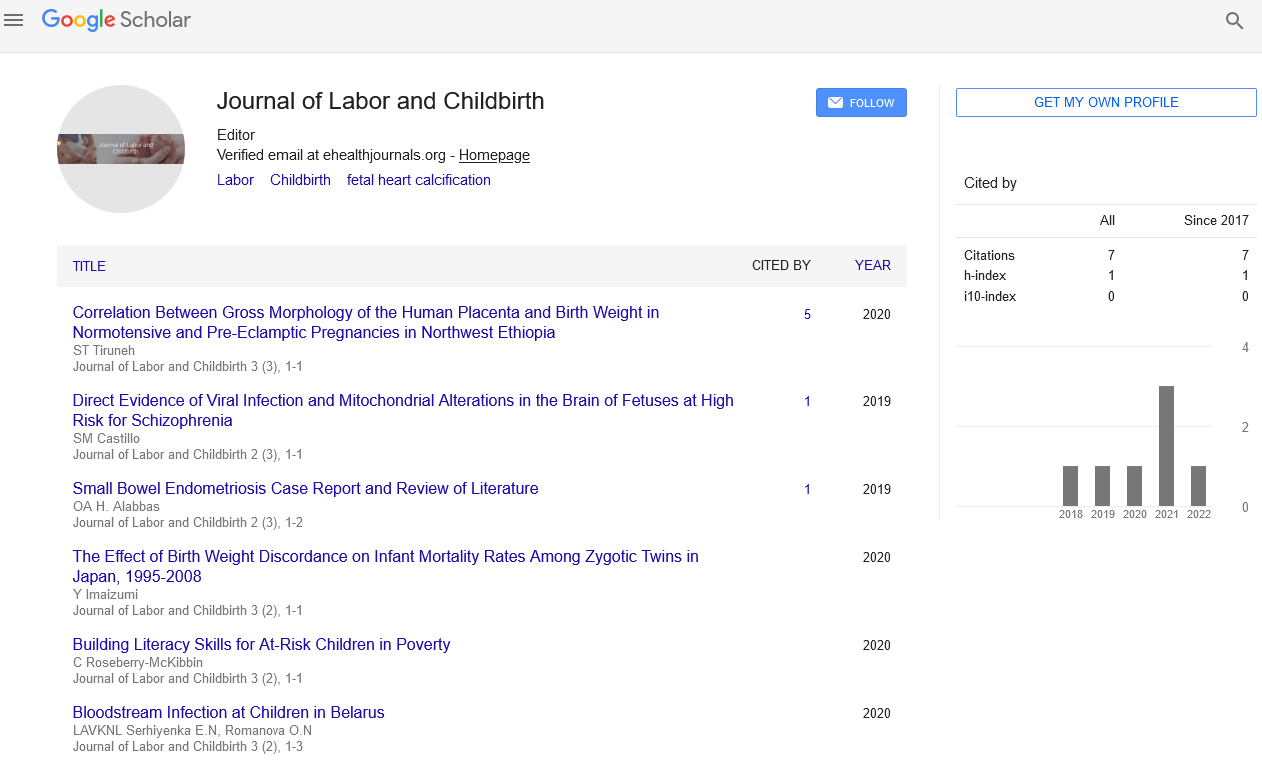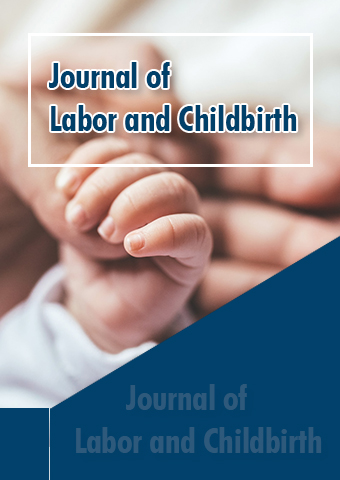Perspective - Journal of Labor and Childbirth (2023) Volume 6, Issue 6
Nurturing Young Minds: The Crucial Role of Early Childhood Education
- Corresponding Author:
- Gabriel Cepaluni
Department of Child Health,
Mich University,
Recife,
Brazil
E-mail: gabriel.cepa@gmail.com
Received: 02-Nov-2023, Manuscript No. jlcb-23-119700; Editor assigned: 07-Nov-2023, PreQC No. jlcb-23-119700 (PQ); Reviewed: 21- Nov-2023, QC No. jlcb-23-119700; Revised: 07-Dec-2023, Manuscript No. jlcb-23-119700 (R); Published: 15-Dec-2023, DOI: 10.37532/jlcb.2023.6(6).156-157
Introduction
In the journey of life, education acts as the compass that guides individuals towards intellectual, social and emotional growth. Among the various stages of education, none is as pivotal as early childhood education. The formative years of a child’s life lay the foundation for their future endeavors, shaping their cognitive abilities, social skills and emotional resilience. In this article, we will explore the significance of child education, the principles of effective early childhood education and the long-term impact it has on a child’s development.
Description
The importance of early childhood education
The early years of a child’s life, typically spanning from birth to eight years old, are characterized by rapid brain development and a heightened sensitivity to the environment. It is during this period that children acquire fundamental skills and attitudes that will influence their approach to learning throughout their lives. Research has consistently shown that high-quality early childhood education can have a profound and lasting impact on a child’s cognitive, social and emotional development.
Cognitive development
Early childhood education provides a structured and stimulating environment that encourages cognitive growth. Young minds are like sponges, absorbing information and experiences at an astonishing rate. A well-designed curriculum, focused on ageappropriate activities, can foster language development, mathematical reasoning and problem-solving skills. By engaging children in activities that promote curiosity and exploration, educators can ignite a passion for learning that will stay with them as they progress through their academic journey.
Social skills
Beyond academic achievements, early childhood education plays a crucial role in the development of social skills. In a classroom setting, children learn to interact with their peers, share, take turns and collaborate on tasks. These experiences contribute to the formation of a strong foundation for positive social relationships. Learning to navigate social situations at an early age not only enhances a child’s current well-being but also prepares them for success in future interpersonal interactions.
Emotional resilience
The emotional well-being of a child is another critical aspect influenced by early childhood education. In a supportive and nurturing environment, children learn to identify and express their emotions. Moreover, they develop coping mechanisms to deal with challenges and setbacks. Emotional resilience cultivated during the early years serves as a valuable asset, helping children navigate the complexities of life with confidence and adaptability.
Principles of effective early childhood education
To maximize the benefits of early childhood education, it is essential to adhere to principles that align with the developmental needs of young children.
Play-based learning: Play is the natural language of children. Through play, they explore, experiment and make sense of the world around them. Effective early childhood education programs incorporate play-based learning, recognizing its role in promoting creativity, imagination and problem-solving skills. Play-based activities not only capture children’s interest but also provide a holistic approach to learning that addresses cognitive, social and emotional development simultaneously.
Individualized instruction: Every child is unique, possessing distinct strengths, interests and learning styles. Effective early childhood education recognizes and accommodates this diversity through individualized instruction. Teachers who understand the specific needs of each child can tailor their approach, providing targeted support to foster optimal growth. This personalized attention creates a positive learning experience and helps build a strong foundation for future academic success.
Holistic development: Early childhood education should prioritize the holistic development of a child, addressing cognitive, social, emotional and physical aspects. A balanced curriculum that includes not only academic subjects but also arts, physical education and social activities ensures a comprehensive learning experience. By nurturing all facets of a child’s being, educators contribute to the formation of well-rounded individuals capable of facing the challenges of the future.
The long-term impact of early childhood education
The benefits of early childhood education extend far beyond the formative years, influencing a child’s academic and personal trajectory throughout life.
Academic success: Children who receive quality early childhood education are more likely to perform well academically in later years. The foundation laid during the early years equips them with the necessary skills, knowledge, and enthusiasm for learning. Research indicates that children who participate in high-quality preschool programs exhibit higher levels of academic achievement, reduced likelihood of grade retention and increased rates of high school graduation.
Enhanced social competence: The social skills acquired during early childhood education contribute to the development of strong interpersonal relationships. Children who learn to communicate effectively, collaborate with others and navigate social situations with confidence are better equipped for success in their personal and professional lives. The ability to work well with others is a valuable asset in any career or social setting.
Reduced risk of behavioral issues: Early childhood education has been linked to a lower risk of behavioral issues and delinquency in later years. The structured and supportive environment provided by quality early education programs fosters positive behavior and emotional regulation. By addressing social and emotional development, educators contribute to the prevention of behavioral challenges, setting the stage for a positive and productive future.
Economic impact: Investing in early childhood education is not only beneficial for individual children but also for society as a whole. Studies have shown that quality early childhood education programs yield a significant return on investment. The economic benefits include increased workforce productivity, reduced crime rates and lower public spending on remedial education and social services. By laying the groundwork for a skilled and responsible citizenry, early childhood education contributes to the overall well-being and prosperity of communities.
Conclusion
In conclusion, early childhood education is a cornerstone of lifelong learning and success. The formative years of a child’s life are a period of incredible growth and development and the experiences during this time shape the trajectory of their future. By embracing the principles of effective early childhood education and recognizing its long-term impact, we can create a foundation for a generation of individuals who are not only academically proficient but also socially adept, emotionally resilient and ready to contribute positively to society. As we continue to advocate for the importance of early childhood education, let us strive to create a world where every child has the opportunity to flourish and reach their full potential.

